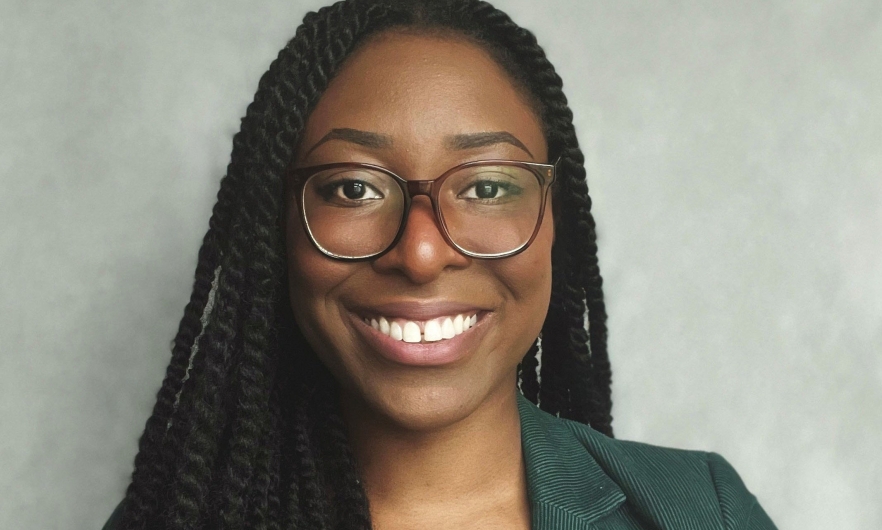Spotlight: Yinka Bode-George, MHS '17
Yinka N. Bode-George, MHS ’17, leads a national philanthropic nonprofit that transforms sustainability to maximize community impact and achieve environmental justice.

Yinka N. Bode-George, MHS ’17, is the founder and chief executive officer of Sustain our Future Foundation, a national philanthropic nonprofit that transforms sustainability to maximize community impact and achieve environmental justice. The Sustain our Future Foundation enables environmental justice-oriented sustainable development through the lens of reparative justice.
As an environmental health advocate, Yinka works to advance environmental justice and sustainable development through infrastructure development and social impact strategies. Prior to starting her foundation, she led the strategy and management of Volt Energy Utility’s environmental justice and community impact practice as the director of the Sharing the Power Foundation, Volt’s community impact nonprofit. She managed programs associated with Volt’s Environmental Justice Power Purchase Agreement (EJPPA) to help renewable energy buyers achieve their clean energy goals and commitments to environmental, social and governance standards.
I now lead my own company and continue to benefit from the relationships and technical skills I gained during my time in the program.
Yinka has served as the environmental health program manager for the National Caucus of Environmental Legislators. In that role, she facilitated state-level environmental health and justice policies by resourcing and organizing a national network of state legislators around zero waste and circular economy solutions, toxic chemical protections, and sustainable agriculture policies. As the former public policy and program manager for Maryland Philanthropy Network, Yinka cultivated opportunities for Maryland philanthropists to improve community conditions. Yinka also served as program manager for Maryland Environmental Health Network, where she advanced policies that promote environmental health and justice for all Marylanders.
How did your Master of Health Science (MHS) in Environmental Health degree prepare you for your current and future roles in environmental science?
Through my MHS studies, I was able to build an environmental health technical analysis while applying my knowledge base through practice experiences in Baltimore City. My coursework and thesis development provided the opportunity to study the intersection between environmental hazard exposure, social inequity, and health outcomes. A great supplement to my studies was the Risk Sciences and Public Policy certificate I received, which allowed me to see the connections between research, policy, and practice in the real world. The access to global industry leaders, through courses and campus events, allowed for my own professional development and network building. I now lead my own company and continue to benefit from the relationships and technical skills I gained during my time in the program.
What was your favorite thing about living in Baltimore?
Baltimore City’s rich cultural landscape and dedicated variety of community organizations were great experiences for me during my time at BSPH. Baltimore is a phenomenal city for students who are passionate about being in service to the community.
